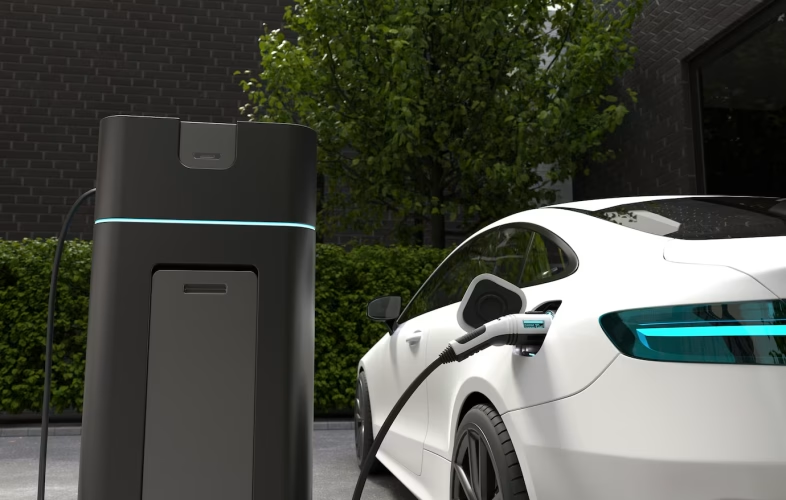Birmingham Launches On-Street EV Charging Network with Ubitricity to Expand Access to Electric Vehicle Charging

Categories :
Birmingham City Council is installing 560 lamppost EV charge points with Ubitricity to expand residential charging access. The project supports the city's sustainability goals, minimises street clutter, and is funded by the On-Street Residential Chargepoint Scheme.
Birmingham City Council has initiated the deployment of an on-street electric vehicle (EV) charging network in collaboration with Ubitricity, the UK’s largest charge point operator and a wholly owned subsidiary of Shell. The project aims to improve access to overnight charging for residents who do not have private off-street parking, thereby supporting the city’s transition towards a cleaner and more sustainable transport infrastructure.
The initiative involves the installation of 560 lamppost EV charge points across 82 residential streets in Birmingham. The deployment is part of the city’s wider Electric Vehicle Charging Strategy and is designed to encourage the adoption of electric vehicles by providing accessible and convenient charging solutions.
Addressing the need for residential EV charging infrastructure
A key driver behind this initiative is the challenge faced by many EV owners who lack access to private driveways or garages for overnight charging. Data indicates that a significant proportion of electric cars are parked at homes without dedicated charging facilities, creating a barrier to EV adoption. By integrating charge points into existing lampposts, Birmingham City Council aims to remove this obstacle and promote wider use of electric vehicles.
Councillor Majid Mahmood, cabinet member for environment and transport at Birmingham City Council, highlighted the importance of this initiative in supporting the city’s broader transport goals:
"While our focus as a council is on delivering the Birmingham Transport Plan and encouraging people to swap private vehicles for public transport, we also want to ensure that, for those who require use of a car, we have the infrastructure in place to facilitate use of low or zero-emission vehicles."
Efficient and minimal disruption installation process
The installation of charge points is designed to be efficient and minimally disruptive. Each charge point takes less than an hour to install, ensuring minimal impact on residents and road users. Additionally, the design avoids street clutter by integrating charge points directly into lampposts, aligning with the city’s planning considerations and aesthetic requirements.
Ubitricity has already installed 301 charge points between 15 October and 24 December 2024, marking one of the fastest mass rollouts the company has undertaken. The remaining 260 charge points are scheduled for installation before the end of spring 2025. The deployment is funded through the Office of Zero Emission Vehicles’ On-Street Residential Chargepoint Scheme, demonstrating national support for local EV infrastructure development.
Supporting Birmingham’s sustainability goals
This initiative aligns with the city’s broader commitment to sustainability, particularly the Birmingham Transport Plan 2031, the Brum Breathes Clean Air Strategy, and the Route to Net Zero initiative. These policies seek to prioritise walking, cycling, and public transport while ensuring that private vehicle use is supported through clean energy solutions. By enhancing the availability of EV charging, the city is taking a significant step towards reducing emissions and promoting sustainable urban mobility.
Stuart Wilson, UK managing director of Ubitricity, expressed enthusiasm for the collaboration and its potential impact on Birmingham’s transition to electric mobility:
"Ubitricity is delighted to be supporting Birmingham City Council as it begins this journey to create one of the largest public EV charging networks outside London, encouraging the transition to electric vehicles, and helping to create a cleaner and healthier environment for the people of Birmingham."
Setting a model for other cities
Birmingham’s initiative serves as a model for other cities looking to expand their EV charging infrastructure. The project demonstrates the feasibility of integrating charging solutions into existing urban infrastructure and highlights the benefits of public-private partnerships in accelerating the transition to electric mobility.
The collaboration between Birmingham City Council and Ubitricity is expected to improve the accessibility of EV charging for residents, encouraging more people to adopt electric vehicles and contribute to the city’s long-term sustainability objectives.
Himani Verma is a seasoned content writer and SEO expert, with experience in digital media. She has held various senior writing positions at enterprises like CloudTDMS (Synthetic Data Factory), Barrownz Group, and ATZA. Himani has also been Editorial Writer at Hindustan Time, a leading Indian English language news platform. She excels in content creation, proofreading, and editing, ensuring that every piece is polished and impactful. Her expertise in crafting SEO-friendly content for multiple verticals of businesses, including technology, healthcare, finance, sports, innovation, and more.










